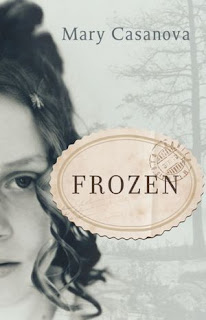After the disappointment of Summerset Abbey, I was really looking forward to something actually light and with a guaranteed happy ending. Where else to look but a romance novel? Romance novels are oddly like old timer sitcoms: no matter what trouble the protagonists get themselves into, you know it will all be solved by the ending of the book.
This book is the first in a series called The Muses of Mayfair, a group of young women that all have hobbies that aren't very proper for women of their station. Madeleine, our heroine, for example, loves the theatre and would love to be an actress. Unfortunately for her, back in these days, the theatre is only for women with loose morals and Madeleine is definitely not that. So, with a disguise at hand, she takes to the stage for what she thinks will simply be a two week engagement playing Hamlet. How is she to know what a success she will be, attracting even some of the ton to the performance?
Our hero, meanwhile, is William "Ferguson" Avenel, the son of a duke who ran off to Scotland years ago and has only just arrived back in London due to his father's death. Years ago he left behind this life and wants to get all the arrangements done with quickly so he can get back to Scotland and his life of hiding. When he sees Madeleine at a party, he thinks she will be the perfect chaperone for his two younger half-sisters. She is a spinster and of very high moral standing. He doesn't, of course, expect to find out her secret and fall in love with her.
This being a romance novel, you pretty much know what you're going to get when you go into it. Ferguson and Madeleine are going to fall in love. People may find out Madeleine's secret but it's not going to hurt her in any major way. Ferguson will get over his problems with his dead father and become the kind of duke people want him to be. It's all about how we get there, though.
While I enjoyed Heiress Without a Cause, I didn't really think it was anything special, either. I did enjoy the Hamlet references but the plot was nothing new and there were some really melodramatic bits with her getting into a fight with her best friend and quasi-sister that seemed a bit much.
However, I really liked this introduction to The Muses of Mayfair. I think the series has a lot of potential and would like to read about Ellie, Ferguson's sister, in particular. You can kind of see in this novel what Ellie's story is going to be but it looks much more interesting and dramatic than the others.
I will probably read more in the series when I feel the need for something light and happy. You really can't beat a romance novel for that and Regency Romance is the best.























